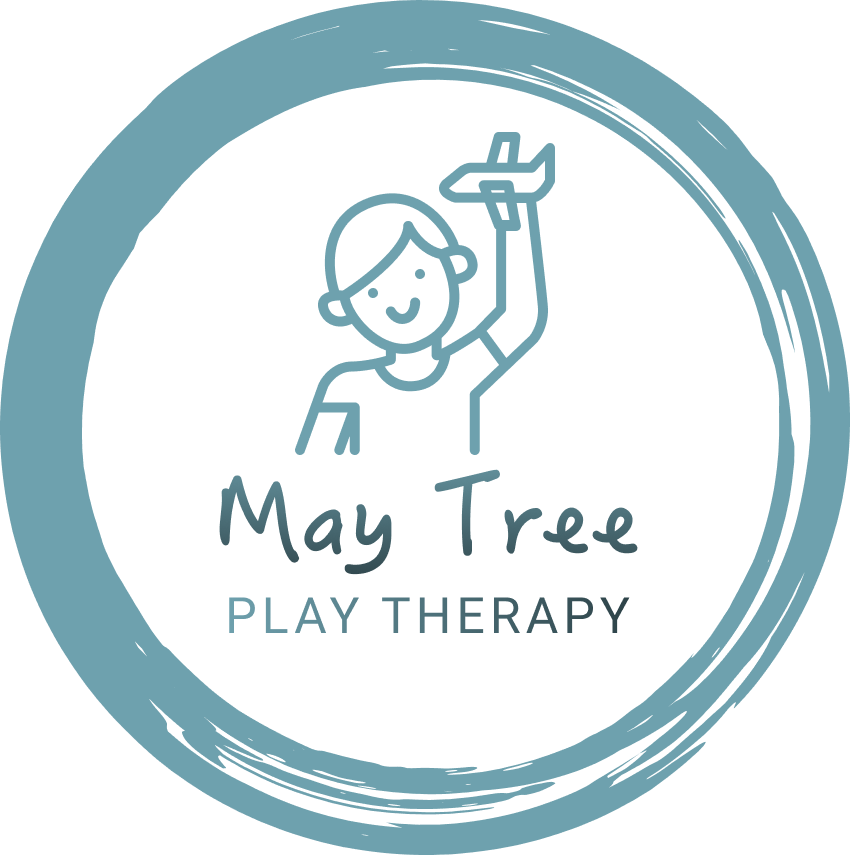How does it work?
The child leads the way. In play therapy sessions, children are given the space and tools to explore and express what is on their mind. Children get to discover their creativity and express themselves through:
- Art – Crayons, markers, paints, clay and other art materials enable children to express their emotions, thoughts and memories using their own symbolism and imagery. This can be particularly helpful for those who have difficulty verbalizing their feelings. Using the symbolic language of art children can experience and deal with their emotional feelings and make changes in related behaviors.
- Sand tray - Sand therapy involves a tray of sand and miniature figures. Children create scenes in the sand to tell a story. This provides them with an opportunity to recreate in the sand events and situations from their past and present. The child may also explore possibilities for the future or express their fantasies. Doing so helps them gain mastery over past and current issues, finding resolution of the issues through development of insight.
- Puppetry - Puppets can be used to act out scenarios, express feelings and explore relationships. They provide a sense of safety and distance, making it easier for children to discuss difficult topics.
- Music and movement – Musical instruments are available for children to express their feelings by exploring melody and rhythmic patterns to suit their mood. Through music the therapist can have a nonverbal conversation with the child. The child's feelings and energy can be reflected back to them demonstrating that they are being listened to.
- Dramatic play – Costumes, masks and props allow children to engage in role-playing activities which helps them explore different perspectives on their experiences. Here a child might practice new behaviors, improve social skills or articulate ideas, wishes and fears.
The play therapist facilitates and supports the play: gaining an insight into the child’s inner world and helping the child process and make sense of their experiences. This process promotes a child’s awareness of their feelings, which helps them to know and trust themselves.
Learning about themselves in this way helps children with:
- self-esteem
- responsibility for their choices and actions
- self-control
- boundaries
- problem-solving
Play therapy sessions are 40 minutes long and take place on the same day and time each week so that they become predictable and reliable for your child. Initially, 12 sessions are recommended. We will usually schedule a review to discuss your child’s progress after the tenth session. At this point, we can decide if additional sessions are necessary to help your child reach their therapeutic goals or if it is time to finish up.
May Tree is committed to providing an accepting and confidential environment for children to explore their thoughts and feelings. I primarily use a non-directive, child-centered approach and incorporate other more directive techniques based on each child’s individual need.
About Our Therapist
Grace Freeman is a Certified Play and Creative Arts Therapist providing play therapy sessions in primary schools and in her private practice May Tree Play Therapy. Grace is registered with Play Therapy Ireland (PTirl) and works in line with their code of practice. Grace has undertaken undergraduate and postgraduate academic and clinical training to develop her specialist knowledge and holds BA in Psychology and a Post Graduate Diploma in Practice Based Play Therapy from the University of Galway. Grace is a member of the Irish Play Therapy Community Association (IPTCA) and a graduate member of the Psychological Society of Ireland (PSI).
What Next?
If you would like more information about play therapy or to discuss how play therapy may help your child, please get in touch.
We can discuss and assess whether play therapy may be a suitable therapeutic option for your child. If you feel play therapy is the right fit, we can schedule an initial consultation in person. This gives me insight into your child and allows parents/guardians understand the process.
It is preferable that both of the child's parents/guardians attend, but separate consultations can be arranged in situations of separation or divorce.
Following an initial consultation, we will schedule a first session for your child at a time that works for you both. As there are limited after-school sessions available, play therapy sometimes takes place during school hours. Schools are supportive of this, and it does not affect the child's attendance record.
Play therapy sessions are 40 minutes long and take place on the same day and time each week so that they become predictable and reliable for your child. Initially, 12 sessions are recommended.
We will usually schedule a review to discuss your child’s progress after the tenth session. At this point, we can decide if additional sessions are necessary to help your child reach their therapeutic goals or if it is time to finish up.
